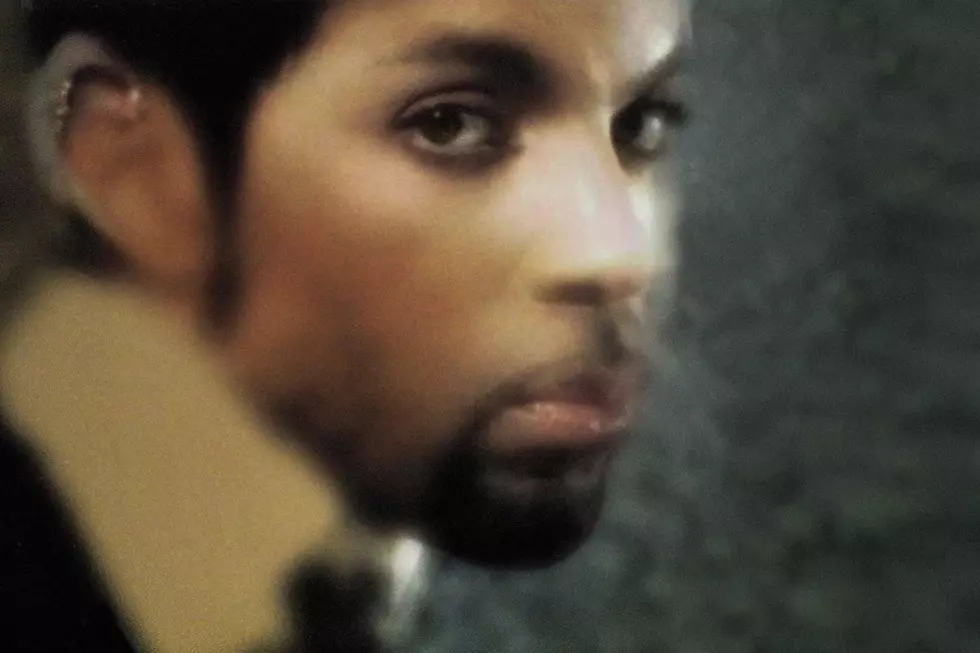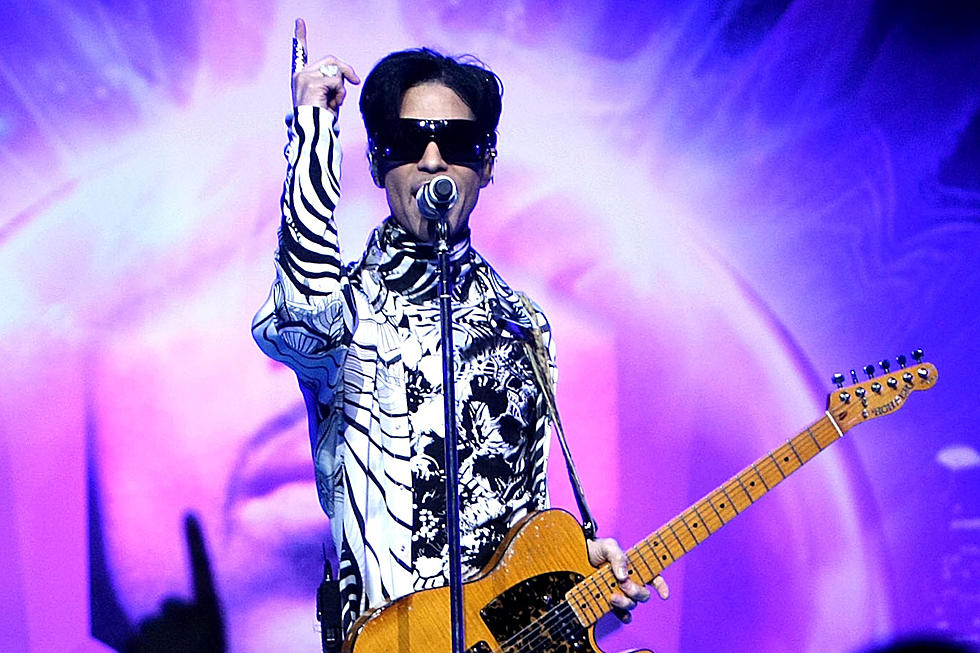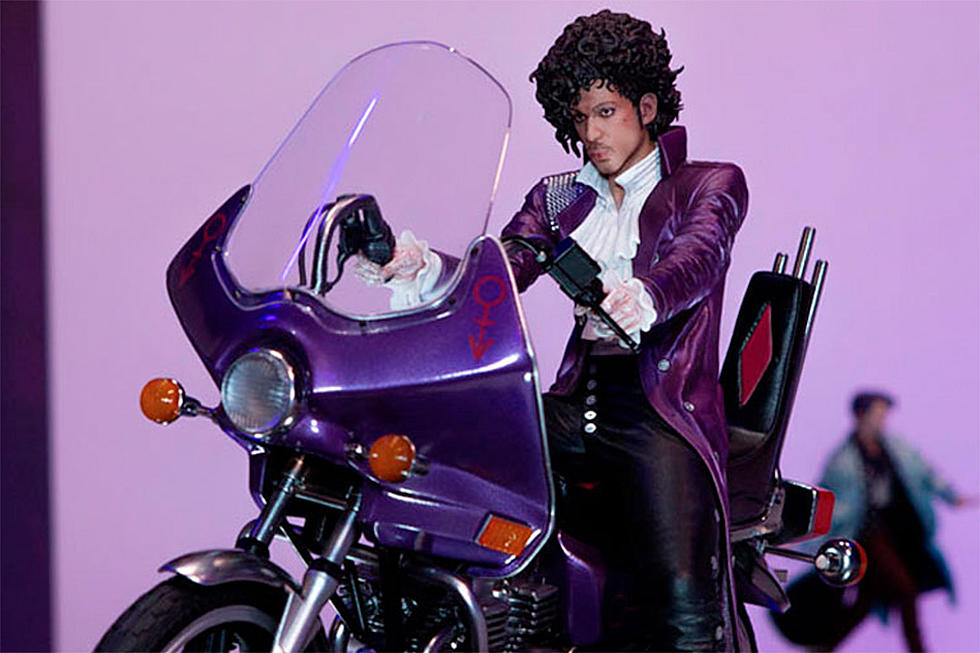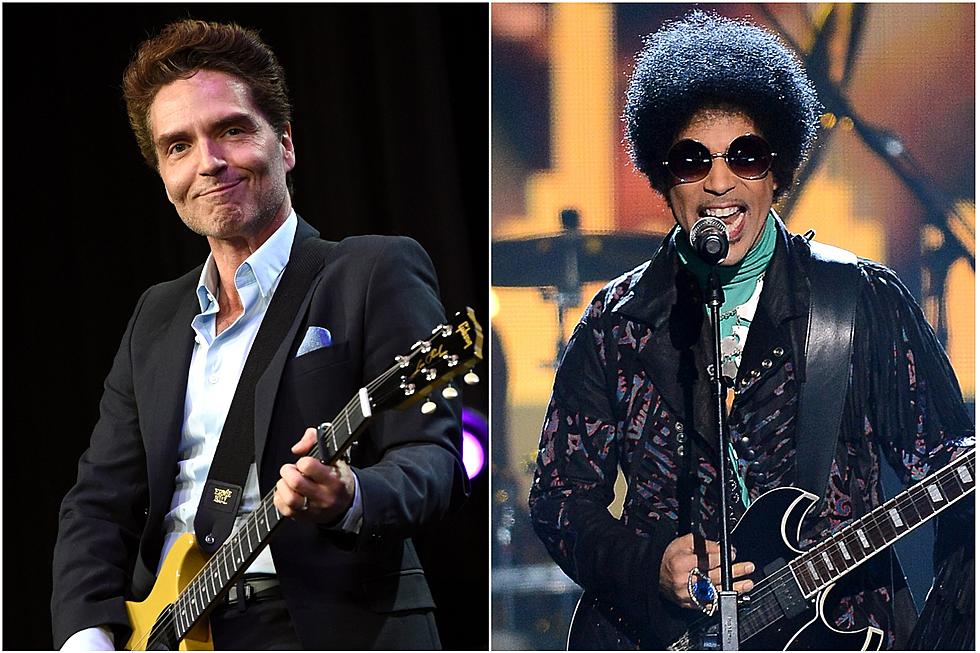
Prince Strips Down on ‘The Truth': A Track-by-Track Guide
Bundled with the Crystal Ball set in 1998, The Truth is often promoted as an acoustic album.
That’s not entirely true; there is some electric programming. But for the most part, The Truth is a stripped-down project that finds Prince soul-searching in the aftermath of his name change, artistic independence, marriage and the tragedy of his son’s death. Here’s a track-by-track guide to one of his most unique and underrated albums.
“The Truth”
With a biting acoustic guitar riff, followed by Prince’s powerful, soulful vocals, “The Truth” is an attention-grabbing start. It's an interrogation of self; Prince appears to be searching for meaning as an artist, man and spiritual being. “What did you stand for?” he sings. “Who did you save?” These aren’t easy questions, and Prince’s scream near the end conveys his anguish. The only single from the album, Prince performed the song once in 1998 and occasionally in 2002, according to PrinceVault. By the time "The Truth" was released, Prince was studying the Jehovah’s Witness faith with mentor, Larry Graham. Prince would later speak of “the truth” in reference to his newfound beliefs.
“Don’t Play Me”
In 1998, Prince famously told Tavis Smiley, “I can’t be played. A person trying to play me, plays themselves.” After feeling like he was duped into a restrictive relationship with Warner Bros., Prince asserted his independence in the ‘90s. “Don’t Play Me” can be taken as both a colloquial and literal statement; Prince was making peace with the decline in his commercial success. “You couldn’t play enough of me now to make me feel like a star,” he sings. No matter, he was building a devoted core of fans online, and would later win at the 2006 Webby Awards — where he performed “Don’t Play Me.” And he was far more interested in his spiritual well-being than being an industry darling. “The only fame is the light that comes from God and the joy you get to say his name,” he sings.
“Circle of Amour”
Backed by Kirk Johnson’s programmed beats, Prince tells a story about sexual exploration and a group of friends — Mary, Claire, Denise and Belle — in 10th grade. Though he name-checks his real-life school, Central High, he told St. Paul Pioneer Press journalist Jim Walsh that the song was a fantasy. “Are you trying to get me in2 a lawsuit?” Prince wrote via fax. “It’s a fictional story!” Prince also references Joni Mitchell's “The Circle Game.” It’s probably not a coincidence, Prince counted Mitchell as one of his influences, and the quiet and melodic “Circle of Amour” is reminiscent of Mitchell’s style.
“3rd Eye"
During the ‘90s, Prince explored myriad religions and spiritual systems. In addition to singing about reincarnation and karma, he also referenced the Eastern concept of the third eye, representing perception beyond ordinary sight. “Using a special code, he accessed his mind,” Prince sings, perhaps of esoteric knowledge. On the other hand, the “special code” could represent the Bible; Prince also references Adam and Eve. According to analysis by 500 Prince Songs, Prince could be connecting the third eye with knowledge of good and evil that the biblical characters gained in the Garden of Eden. But given the racy lyrics about the serpent appearing “between Adam’s thighs” and the release of “nectar,” the third eye may also represent a certain reproductive organ. Prince does not bust out his one-eyed bass on this track; those duties fall to Rhonda Smith. “He let me play on a lot of stuff on that [album], which was really great,” Smith recalled. “He would call me at 4AM and have me go in the studio when he wasn’t there. … So that was really fun to do.” Though Prince committed to the Jehovah’s Witness faith, he never abandoned his belief in the third eye, which later inspired his band, 3rdeyegirl, and famous third-eye sunglasses.
“Dionne”
Prince was surprisingly open about the inspiration for his songs on his website, love4oneanother.com. He once told fans that the 1994 song “Pheromone” was about “Carmen Electra and the Crazy Horse.” When asked about “Dionne,” he replied, “Dionne lives in London and knows quite well the heart she broke.” Singer Dionne Farris later said Prince sent her a cassette tape with the song on it. “We met, talked, exchanged numbers and we kept in touch I’d say for about three years having conversations about the music industry,” she said in an interview. “I’m forever grateful [for] the encounters we had and the wisdom he shared.” Since his death, Farris has honored Prince as part of the ATL Collective, which has performed musical tributes to the late artist in Atlanta.
“Man in a Uniform”
The upbeat, soul and funk throwback is a nice break from the first half of slow, serious and wistful tracks. Here, Prince has a bit of role-playing fun with his lover. He adds in some whimsical musical touches, including a military bugle call, shouts and altered vocal effects. Though the “man in a uniform” description might better apply to Michael Jackson, who enjoyed quite a bit of military-inspired gear, Prince loved a good pilot cap. “Man in a Uniform” does have an underlying darkness. Prince sings of his lover, “She needs to be drunk with pride … to make up for the emptiness that she feel inside.”
“Animal Kingdom”
While many celebrities have drawn the ire of PETA, Prince was considered a friend to the animal rights organization. PETA praised Prince’s pro-vegan anthem “Animal Kingdom” and used the song — with the artist’s permission — to promote its 20th anniversary. Prince attended PETA’s 2005 gala, and was crowned the organization’s “Sexiest Vegetarian” a year later. After Prince’s death, PETA offered a free download of “Animal Kingdom” and wrote a tribute to the icon. Backed by Rhonda Smith on bass, Prince denounces red meat, white fish and blue cheese, and references a conversation he had with Spike Lee regarding the filmmaker’s “Got Milk?” ad. Prince made clear that his decision to be a vegetarian was not only ethical but spiritual. “One can actually feel one’s karmic debt decrease with every meal,” he told Vegetarian Times in 1997.
“The Other Side of the Pillow”
The smooth jam was so nice, Prince recorded it twice. The live version on 2002's One Nite Alone… Live! is jazzier and features a full band, including horns. Prince praises his lover’s creative use of furniture — a skill he has long enjoyed. For example, you’ll find mentions of women and chairs in “319,” “Come” and “Ripopgodazippa.” And in “The Other Side of the Pillow” he asks, “How’d you learn that trick with the chair? / I don’t care, just as long as you do it again.”
“Fascination”
Unlike the other tracks on The Truth, Prince recruited a full band for “Fascination.” According to PrinceVault, Rhonda Smith is on bass, and shares percussion and vocal duties with Kirk Johnson and Kat Dyson. The guitar solo is played by Mike Scott, and the drums are played by David Haynes, though he is not credited. The general message of the unique, upbeat song seems to be, “Be careful what you wish for” or “Everything is not what is seems.” It could easily apply to fame and/or the music industry. Prince makes references to rappers and weed; in the ‘90s he was especially critical of violent and misogynistic language in hip-hop and took a public, anti-drug stance. Some also believe he is taking aim at Michael Jackson when he sings, “So-called king gives birth to so-called prince.” Jackson’s oldest son, Michael Joseph “Prince” Jackson, Jr. was born just a month before “Fascination” was recorded. But the two men were friends. “Michael is an angel,” Prince told journalist Jim Walsh in 2000.
“One of Your Tears”
Prince allegedly was not done communicating with Dionne Farris via song. He sounds even more heartbroken on “One of Your Tears,” asking his former lover, “Did you get the tape I sent you?” According to PrinceVault, Farris said the line referred to their encounter. Never afraid to embellish, Prince also sings about his ex sending a used condom to communicate that she’d moved on. He then fantasizes about getting revenge in an epic way: “I want to die and come back as one of your tears,” he sings. While he once considered being reincarnated as a dolphin to be friends with Warner Bros., he might be too bitter to reconcile with the woman who did him wrong.
“Comeback”
One of the most touching songs in Prince’s repertoire, “Comeback” is a love letter to his son, Amiir, who died just a week after he was born. Prince seemed to find solace in his belief in reincarnation. “If you ever lose someone dear to you, never say the words their gone / They’ll come back,” he sings. “We clung to our faith in eternal life and the great journey of the soul,” Prince’s ex-wife, Mayte Garcia, wrote in her book, The Most Beautiful. “We lay in the dark, talking about where Amiir might be now and how we could bring him back.” Throughout his life, Prince never seemed interested in grappling with death, even his own. “I don’t think about gone,” he told Rolling Stone in 2014.
"Welcome 2 the Dawn (Acoustic Version)”
Prince referenced the dawn so much, it was only a matter of time before he built a song around the phrase. Though he repeatedly wrote, “May U Live 2 See the Dawn” in liner notes from the mid-'80s on, he only realized the meaning in the mid-'90s. “The dawn is here, a time of greater consciousness and spiritual understanding,” he told Minnesota Monthly in 1997. Following his name change, Prince felt free spiritually and artistically, and declared, “Welcome to the Dawn” on The Gold Experience in 1995. He planned an album called The Dawn, which was slated to include an electric version of “Welcome 2 the Dawn.” Though it was never released, the acoustic version shares Prince’s convictions about God and spiritual transformation. In a darker moment on the song, Prince warns about the existence of karma. According to Mayte Garcia, he blamed his past actions for the death of their son. “I could not go there with him, no matter how hard he tried to make me see that path,” she wrote. It is unknown how long Prince carried that belief with him, but painful reflection aside, “Welcome 2 the Dawn” is about a man finding redemption.
More From KSSM-FM










